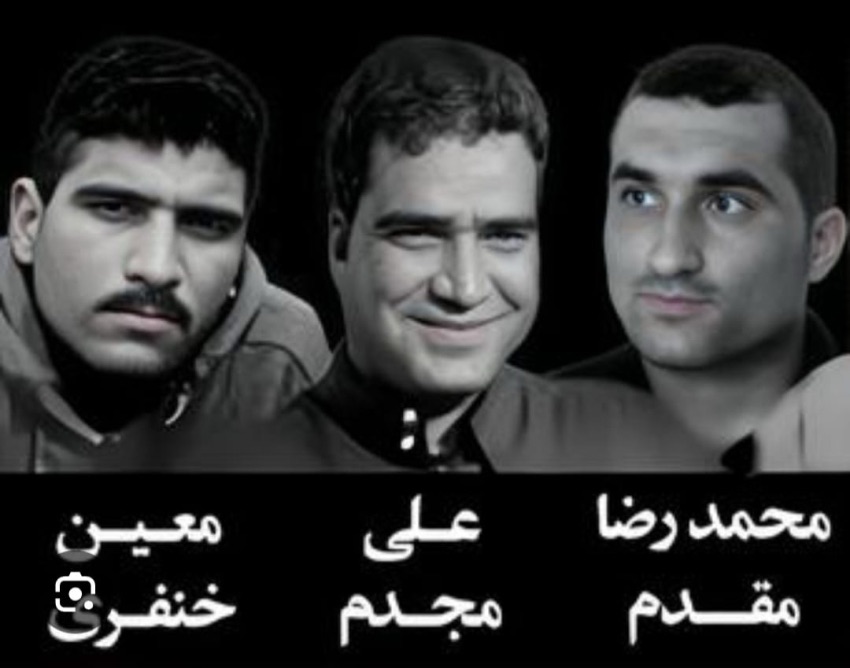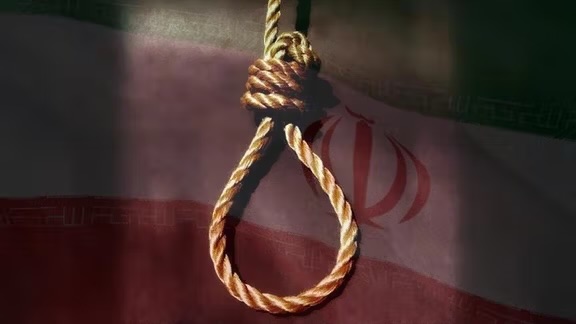
The transfer of three Ahwazi prisoners sentenced to death has raised concerns among human rights organizations about the imminent execution of the men. The three prisoners are:
• Ali Mojaddam bin Saleh, born in 1983, a resident of Sayyed Saleh neighborhood in Ahvaz.
• Mo’in Khenfari bin Israel, born in 1993, also from Sayyed Saleh neighborhood in Ahvaz.
• Mohammad Reza Moghadam bin Mohammad Ali, born in 1992, a resident of the city of Falahiyeh (Shadegan).
They were transferred to solitary confinement in Ahvaz Central Prison (Sepidar Prison) on June 26, 2025, a move widely seen as a prelude to carrying out the death sentences issued against them.
The Iranian Revolutionary Court, affiliated with the Islamic Revolutionary Guard Corps (IRGC), sentenced the three to death on Monday, March 6, 2023, on charges of “conspiring against national security” and “contacting Ahwazi political organizations in exile” opposed to the Iranian regime.
These activists were arrested along with three others: Adnan Ghabishawi (Mousavi), Habib Drees, and Salem Mousavi, on the same charges. Most were arrested by Iran’s Intelligence and Security Directorate in Ahvaz during the second half of February 2019, while some were detained in early 2022, following the killing of two IRGC members and two Iranian security personnel. Iranian state media aired the prisoners’ confessions on Persian-language channels.
The Revolutionary Court in Ahvaz, which is under the control of the IRGC and lacks any judicial independence, issued the sentences after an unfair, closed, and non-transparent trial. The European Union has sanctioned several judges from this court for human rights violations and issuing unjust death sentences against political activists.
In response, Ms. Mai Sato, the United Nations Special Rapporteur on Human Rights in Iran, expressed her concern about the death sentences handed down to the Ahwazi prisoners in a post published on the social media platform X (formerly Twitter).
The Staged Confessions Extracted Under Torture by Iranian Intelligence
Iranian state television—also affiliated with the IRGC—broadcasted fabricated confessions from the three prisoners, in which they admitted to the charges brought against them.
The Ahwazi Organization for Human Rights has confirmed that these statements were false and coerced, obtained through severe physical and psychological torture, in clear violation of both international and humanitarian laws, including the Convention against Torture and the International Covenant on Civil and Political Rights (ICCPR).
According to Article 1 of the Convention against Torture:
“For the purposes of this Convention, ‘torture’ means any act by which severe pain or suffering, whether physical or mental, is intentionally inflicted on a person for such purposes as obtaining from them or a third person information or a confession…”
Additionally, paragraph (g) of clause 3 in Article 14 of the ICCPR states:
“In the determination of any criminal charge against him, everyone shall be entitled to the following minimum guarantees, in full equality… (g) Not to be compelled to testify against himself or to confess guilt.”
These developments have triggered renewed calls for international pressure on the Iranian regime to halt executions and respect its obligations under international human rights law.


